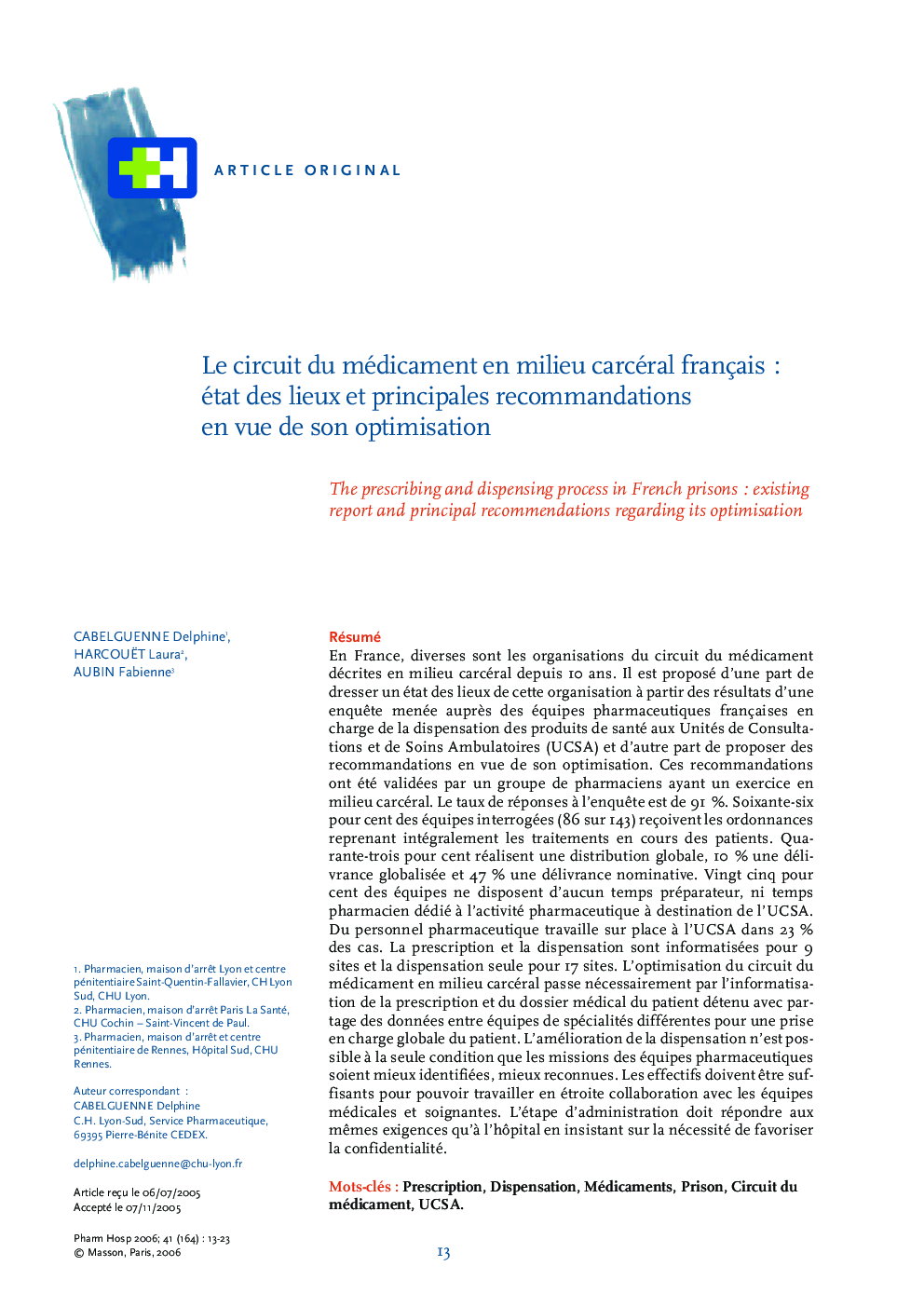| Article ID | Journal | Published Year | Pages | File Type |
|---|---|---|---|---|
| 1086136 | Le Pharmacien Hospitalier | 2006 | 11 Pages |
Abstract
There are various drug distribution systems in French prisons. In this article, we will describe these organizations, by way of a questionnaire addressed to pharmaceutical teams in charge of pharmaceutical tasks in “Unités de Consultation et de Soins Ambulatoires (UCSA)“ which are hospital consulting care units in prisons. The objective of this article is also to suggest recommendations to optimize prescribing and dispensing processes. These recommendations have been approved by a group of pharmacists working in prisons. The rate of response to the survey is 91 %. 66 % of the interviewed pharmaceutical teams (86 out of 143) receive all patients' prescription. 43% carry out a global distribution, 10% a globalized dispensation and 47% a nominative dispensation. 25% of the interviewed teams do not have any pharmacist or technician to dispense the drugs to the UCSA. 9 units have computerized prescribing and dispensing processes and 17 units have a computerized dispensing process only. The optimization of the prescription process in prison is related to the computerization of the prescribing process and the patients' medical file. The improvement of the dispensation is possible if the roles of the pharmaceutical staff is better identified and more recognized. The pharmaceutical staff must be sufficient to work in close cooperation with the medical team and nursing staff. Drug administration needs the same requirements as in hospitals, while insisting on confidentiality.
Related Topics
Health Sciences
Pharmacology, Toxicology and Pharmaceutical Science
Pharmacology, Toxicology and Pharmaceutics (General)
Authors
Delphine Cabelguenne, Laura Harcouët, Fabienne Aubin,
